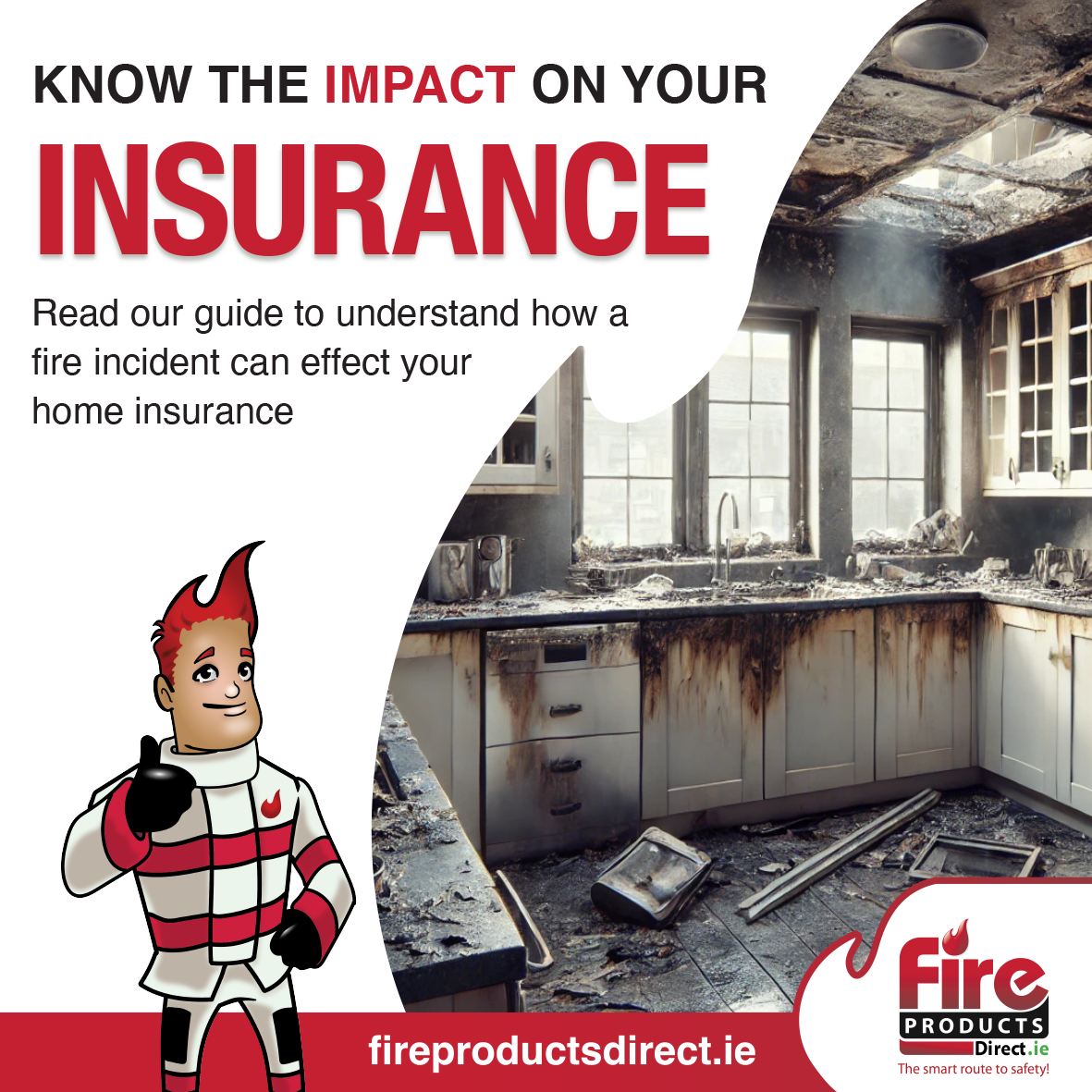
Fire incidents are a homeowner’s nightmare. The destruction, the loss of cherished belongings, and the sheer disruption to daily life can be overwhelming. For homeowners in Ireland, understanding how a fire incident impacts your home insurance is crucial. Here’s what you need to know.
Immediate Impact: Filing a Claim
When a fire occurs, the first step is to ensure everyone’s safety and call emergency services. Once the situation is under control, the next step is to contact your insurance provider to start the claims process. Providing detailed information and evidence, such as photos and reports, is vital to support your claim. The insurer will assess the damage and determine the compensation you’re entitled to, based on your policy’s coverage limits and conditions.
Potential Increase in Premiums
After filing a fire claim, you might see an increase in your insurance premiums. Insurers calculate premiums based on risk, and a history of claims can signal higher risk. While this isn’t always the case, it’s something to be prepared for. Insurers may consider the cause of the fire, the extent of the damage, and whether preventive measures were in place.
Coverage Limitations
It’s important to understand the specifics of your home insurance policy. Some policies may have exclusions or limitations related to fire damage. For example, if the fire was caused by negligence or a lack of proper maintenance, your claim could be partially or fully denied. Ensure you read the fine print and understand what is and isn’t covered.
Importance of Fire Safety Equipment
Investing in fire safety equipment, such as smoke alarms, fire extinguishers, and fire blankets, can make a significant difference. Not only do these devices protect your home and loved ones, but they can also positively influence your insurance policy. Many insurers offer discounts for homes equipped with adequate fire safety measures, seeing them as lower risk.
Long-Term Considerations
Beyond the immediate aftermath, consider the long-term implications of a fire incident on your insurance. Frequent claims can make it harder to switch providers or find affordable coverage in the future. Implementing comprehensive fire prevention strategies can reduce the likelihood of another incident, maintaining your policy’s favorability and keeping your premiums manageable.
Steps to Take Post-Incident
- Document Everything: Keep a detailed record of the fire incident, including photos, reports, and receipts for any emergency repairs or replacements.
- Communicate with Your Insurer: Stay in close contact with your insurance company throughout the claims process. Depending on the extent of the damage,you may wish to appoint an independent loss assessor to help you manage the claim. Regardless, clear communication can expedite the process and ensure you receive fair compensation.
- Invest in Fire Safety: Post-incident, you should review your fire safety measures to identify if there is any area’s for improvement. Include a check of all safety equipment such as extinguishers and fire blankets to ensure they are still fit for purpose.
- Review Your Policy: After dealing with a fire, review your insurance policy. Consider adjusting your coverage if necessary, to better protect against future incidents.
Final Thoughts
A fire incident is a distressing experience, but understanding its impact on your home insurance can help you navigate the aftermath more effectively. By staying informed, maintaining open communication with your insurer, and investing in fire safety equipment, you can mitigate some of the challenges and ensure your home is well-protected.
Be Smart. Be Prepared. Be Safe.
And remember – prevention is always better than cure!







